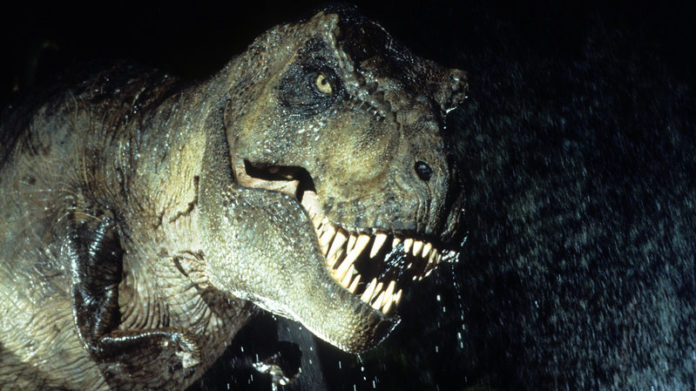After the success of the “Game Changers” documentary about veganism and the rising participation of Veganuary (eating a vegan diet in January), a “new” diet on the opposite side of the spectrum is now making headlines in 2020.
January is World Carnivore Month, and several notable figures, including Joe Rogan, pledged that they were going to try the carnivore diet for 30 days. Like any extreme diet, the carnivore diet is shrouded in controversy, so we’ll address the most common questions people have about this diet.
What is the Carnivore Diet?
As the name suggests, the carnivore diet consists of eating meat. Purists advocate for consuming beef, salt, and water only. However, there are variations of the diet that allow all types of meat and fish, and can also contain eggs small amounts of dairy, including butter, cheese, and milk. Coffee and tea are also typically allowed.
Is the Carnivore Diet Healthy? Is It Safe?
Though this diet hasn’t been studied long-term in mainstream society, the Inuit population has followed a mostly carnivore diet for thousands of years. However, the Eskimos consumed wild-caught fish and animals, including whale skin and organ meats. They also added vegetables and berries to their diet during the summer months.
There are some health concerns about the carnivore diet, including its lack of Vitamin C and fiber. For the most part, meat doesn’t contain much Vitamin C. If you consume liver and lightly cooked meats, you can still get enough Vitamin C to prevent scurvy, but you won’t meet the daily recommended allowance.1
Still, the lack of Vitamin C may not be cause for alarm because it’s believed that when you’re on an all-meat diet with no carbs, your body isn’t producing glucose, which blocks the absorption of Vitamin C. Therefore, you can likely get away with less of this vitamin.2
Similar concerns have been raised about meat’s lack of fiber and other nutrients like magnesium. The science is far from settled on this topic, and most of the information presented from both sides of the carnivore debate is anecdotal.
Will This Diet Yield Results?
Yes, but not for the reason you might think. Because the carnivore diet eliminates every food on the planet besides meat, you’re likely to lose weight and rid yourself of inflammation and food allergies. This doesn’t happen because of meat’s miraculous ability to reshape your body. Instead, it’s the result of an “elimination diet.”3
By removing harmful and processed foods from your diet, you’re bound to lose weight and feel better. Further, if there’s something you’ve been eating that you’re allergic to, then that allergen is immediately nixed from your eating plan.
Is Eating Meat Morally Okay?
Even Joe Rogan, a newly minted carnivore, has a moral dilemma with meat consumption. He says, “We should all look at factory farming and say, ‘this is despicable.’ It’s horrific that we’ve allowed our civilization to accept this.”4
Regardless of your views on animal rights, there’s no denying that the cruelty involved in factory farming is abhorrent, and it’s actually unhealthy to consume meat that wasn’t raised in a natural, pasture-centered environment. When animals are confined and fed in a way that isn’t congruent with their natural diet, they become sick and diseased.
Farmers counteract this effect by pumping them full of drugs and antibiotics. Eating sick and diseased animals can lead to inflamed joints and antibiotic-resistant superbugs.
If you are going to subsist on meat, make sure that you buy grass-fed beef, pasture-raised poultry, pigs, and lamb, and wild-caught fish. Look for certifications like “humane” and “sustainably farmed.”
Is Eating an All-Meat Diet Harmful for the Environment?
Given that livestock and their byproducts account for 51% of all worldwide greenhouse gas emissions, it’s impossible to overlook the environmental impact of eating meat.5 Further, animal agriculture is land-intensive, especially considering how much greens, grain, and corn it takes to feed livestock. Animal agriculture also consumes up to 76 trillion gallons of water annually.6
A plant-based diet, on the other hand, can add to the global food supply without any extra land. Pound for pound, animal products take dramatically more water and carbon to produce than plant products.7
Bottom Line: Any elimination diet is likely to result in weight loss simply because you’re not eating foods that are part of the Standard American Diet (SAD). The Western diet is filled with processed foods, unhealthy fats, refined grains, sugar, high-fructose corn syrup, chemicals, and junk. This means you can have great results by going vegan, paleo, keto, or carnivore.
As far as the safety of “going carnivore” for the long-term, there needs to be more studies to determine whether this lifestyle choice is safe. Our recommendation is to consult with your physician before beginning any new diet and get regular blood tests to check levels of cholesterol, thyroid function, and other health markers.
- https://www.forksoverknives.com/extreme-nutrition-the-diet-of-eskimos/#gs.qxt9ht
- https://www.kevinstock.io/health/do-humans-need-vitamin-c/
- https://global.oup.com/us/companion.websites/9780195371109/pdf/00_Mullin_Appendix_3.pdf
- https://www.youtube.com/watch?v=Jj45e3a6ATg
- http://www.fao.org/3/a0701e/a0701e00.htm
- https://pubs.usgs.gov/fs/2009/3098/pdf/2009-3098.pdf
- https://www.sustain.ucla.edu/our-initiatives/food-systems/the-case-for-plant-based/








